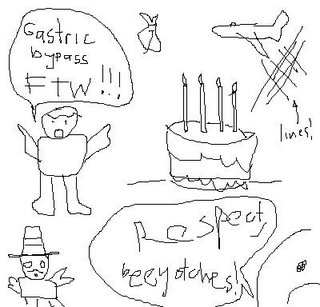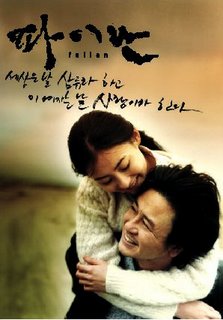 It was the early nineties, I remember. My cousin and I were in an arcade in Tagaytay. After a successful run of X-men the Arcade Game, burning a few hundred pesos worth of tokens in the process, he was playing Street Fighter II Turbo, still considered one of the greatest fighting games of all time. As he waded through single player mode, another person approached him.
It was the early nineties, I remember. My cousin and I were in an arcade in Tagaytay. After a successful run of X-men the Arcade Game, burning a few hundred pesos worth of tokens in the process, he was playing Street Fighter II Turbo, still considered one of the greatest fighting games of all time. As he waded through single player mode, another person approached him. I think he used Ken. Soon my cousin was in a one-on-one fight against him. Seconds passed and I knew that he stood no chance against this stranger. Because of his win, the stranger played Single Player mode while my cousin left his place.
A strange feeling passed over me then. I felt I needed to do something – it was the kind of urgent feeling you get when you wanted something really bad.
I had to defeat this guy.
I stepped up to the arcade station and challenged him. At the time I had never challenged anyone before in any videogame in public, ever. This was my first time. I used Dhalsim, for that was the only character I knew. The match started.
Before I could realize it, adrenaline pumped through my veins as I started pushing buttons. Although it scared me, I found it quite exhilarating. Soon I found myself winning the match. It took all of thirty seconds. I completed the single player mode and went on my jolly way.
A strange feeling poured over me as I walked away from the machine. It was the feeling of victory – something rare and alien to me at the time.
That was my first experience with a fighting game.
In this computer-driven age, the gentlemanly duels of ages past have been replaced with something more convenient – the fighting game. Instead of rapiers or guns or katana we have controllers or fighting sticks – each one with their own personal feel. I get this feeling all the time – my current controller, as defective and as battered as it is, will always be my fighting controller, despite the fact that I’ve wrapped toilet paper around the analog sticks to prevent it from breaking into a gazillion pieces. The place of dueling – the local arcade, or anywhere with a decent TV and a console. And at least, a loser walks away from a match from a fighting game with only a bruised ego, instead of an ear, a nose (like Tycho Brahe,) or his life.
While the image you probably get when you see ‘fighting game’ involves two digitized characters beating the crap out of each other, I see it in the context of a ‘versus’ game – something that involves one person fighting against another in a game of skill. Be it a game of hockey, billiards, basketball or even tetris, it is a fight, a battle. Thus, the term fighting game. When playing against the computer, one can decipher its strategies and make a decent strategy to counter perceived weaknesses. With a human player it’s different. People adapt and try new strategies, plus they’re unpredictable. It’s the ultimate challenge.
It went way back to the first few videogames in the fifties and sixties. Even then the first games weren’t something you’d play singly, it was a versus game – tic tac toe to be exact. Then there was Pong, which is basically a computerized form of tennis. People flocked to it in droves, creating a craze and, ultimately an industry. There was Yie-ar Kung Fu back then for the NES. Then came the Street Fighter Series. The concept of combos, multiple attacks strung together, was born. From 2D the fighting progressed to 3D. The nature of attacks evolved, and the strategy of fighting became a precise art. For some games knowing the frame speed of different moves can determine whether one wins or not.
I went to the local PS2 rental facility and found many people playing games that involved a versus component in one way or another. One fellow powerbombed his young friend in a wrestling match; in another station, a girl was throwing haymakers at her boyfriend in a boxing match. You could see the enjoyment in their faces, the exhilaration. It’s hard to describe.
After that one experience in Tagaytay I never got to play a decent fighting game against a friend or stranger in years. Years passed, then college rolled by. It was our first week, and with a three hour break we decided to head to the local arcade at the mall.
I discovered Soul Calibur.
Soul Calibur, (then the latest game of the Soul series) was a weapon based 3D fighter in the mold of old Playstation games like Toshinden, taken to the next level. Even now it is considered one of the greatest 3D fighters of all time; many look to the excellent gameplay and balance the game had to offer. The best version next to the Arcade Version, arguably, was the Dreamcast version, and it was one of the reasons to buy a Dreamcast. I was drawn to the game immediately and started playing. At first one could finish the game with simple moves, but it was clear that against people you wouldn’t go anywhere with just simple moves. I first faced my classmate, a veteran of fighting games who played Tekken Tag quite well. Even though it was his first time, he had instinct, and he managed to beat me using his character. Yes, I thought, simple moves would not be enough. I would have to move with my character, make his movements an extension of my own, his mind one with mine.
To beat a skilled person takes technical skill, reflexes and fighting instinct. The first two are easily attainable by practice, but the third takes something else entirely. For the third, you need experience. That’s built up by fighting countless battles with someone else – and not just one person, it has to be different people, to absorb as many fighting styles as you can. And so I battled against total strangers. Students, employees, mall janitors, anyone I could get my hands on. I won a few, and I lost a few. Sometimes I would lose all the time. But I would take it in stride and be happy that I managed to fight someone strong.
I met a couple of people that seemed too intimidating to fight: the bespectacled student that intentionally lost matches to get the most of his six peso token; the Court of Appeals employee who used his characters like a virtuoso, the random person who you know is top tier from the way he mixes up his moves.
One day I was in SM City, playing by myself. Suddenly the challenge screen appeared; someone had decided to challenge me. He was very good and managed to win against me consistently. I would win a couple of matches but never one whole set. I did everything I could to no avail, spending most of my tokens. I was not disheartened by my constant losses… I felt exhilaration. I was genuinely happy that someone this skilled was fighting me. Then, eventually, I won a set. That player never returned. It was one of the greatest feelings ever. Even if I hadn’t won that set I would have been pretty impressed anyway. It wasn’t the victory or loss that was important, it was the idea of having to fight someone really strong. I wonder if warriors of old thought of the same things. I wonder if they, lying cold, bruised or dying under the rain after a mutual duel, resigned themselves to death knowing that they were beaten by someone strong.
Afterwards I learned the power of strategy. Before my style was increasingly aggressive - I merely tried to get as many hits in as possible, and hope that I caused more damage than the other guy. But then I learned how to play defensively. I started blocking, waiting for an opening to attack. I learned how to run away and evade attacks. It made me think before I attacked - and that improved my game drastically.
Alas, like all things, we move on. Since then I’ve moved on to other games, and I've met a lot of good friends through them. I’ve learned a lot of things while playing, and not just about the fighting game itself. In the game of life, I’m decidedly mid-tier – but the tokens in this game are endless, and I’m happy for the challenge.


